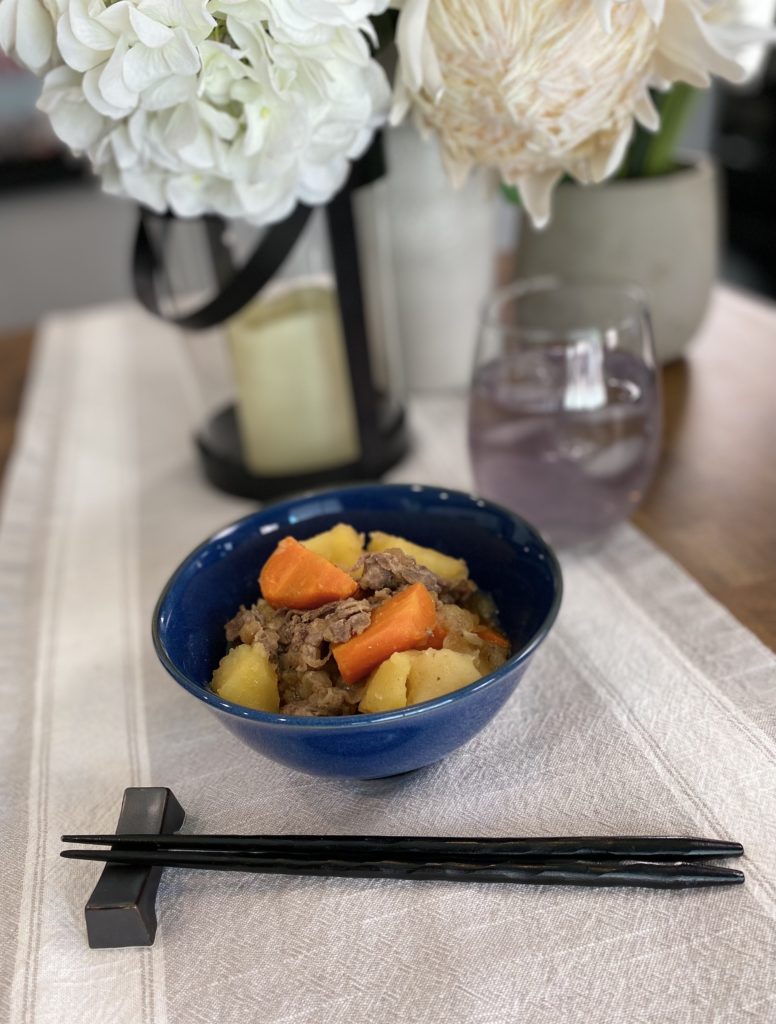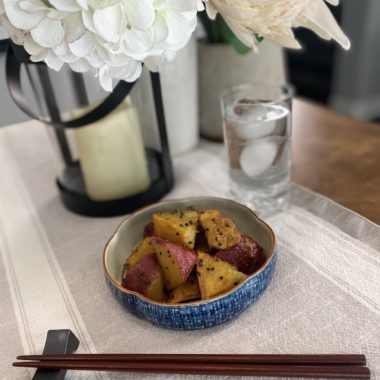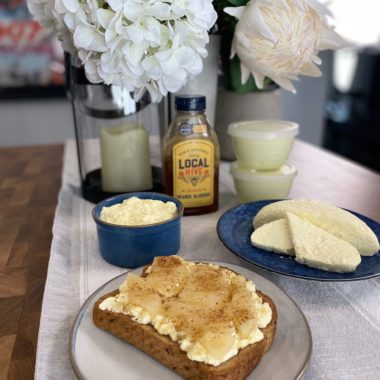Details
2
15 minutes
45 minutes
Every culture seems to have their own “meat and potatoes” dish, and Japan is no different. Nikujaga literally translates as “meat potato.” “Niku” means “meat (usually beef);” “jaga” is a shortened version of “jagaimo,” which is what white potatoes are called in Japan.
“Jagaimo” is like many “imported” words which have become a part of Japanese vocabulary. It’s a combination word, from the Dutch “Djarkarta” and the Japanese “imo.” White potatoes are not native to Japan; they were imported from Jakarta, Indonesia by the Dutch in the 1500s. “Jakarta imo” became “jagaimo.”
Using it in cooking became popular a couple of centuries later when rice supplies ran low, as a replacement starch. Before then, it was just a decorative plant!
My recipe for nikujaga uses two kinds of potatoes. The fluffy Russet absorbs flavors so well. The buttery Yukon Gold adds a different texture and is super tasty once it absorbs the umami flavors of nikujaga. In Japan, “Danshaku” potatoes would be the closest to the fluffy Russet; Yukon Golds are closer to waxy “May Queens.” While it’s not necessary to use two kinds, I personally love it.
This recipe is a little different from the traditional nikujaga – it’s all made in a rice cooker! The rice cooker prevents the potatoes from crumbling, which can happen easily when you’re stirring this in a pot. It’s also a smaller-portion recipe. This will serve two for dinner. It’s also plenty for one, with enough for a bento lunch the next day (it’s delicious at room temperature). Don’t forget to enjoy the most delicious broth at the bottom!
If you’d like to go the traditional Japanese route, this would be served as part of a larger dinner setup. A regular Japanese dinner would be:
- Miso soup
- A main (like this nikujaga)
- Some salt pickles
- A few other dishes made earlier that week.
However, much like most Japanese mains, this is absolutely perfect as a standalone dish.
For other tasty Japanese recipes you can make in a rice cooker, try my Japanese Beef Stew and Daigaku Imo recipes!

Ingredients
- 1/2 large Russet potato
- 2 small Yukon Gold potatoes
- 1/2 medium carrot
- 1/2 medium onion
- 4 oz Shabu-Shabu beef (can substitute shaved beef)
- 1/2 Tbsp sake (does not have to be the expensive stuff)
- 1 Tbsp mirin
- 1/2 Tbsp granulated sugar
- 1-1/2 Tbsp soy sauce (can substitute tamari)
- 1/2 Tbsp dashi powder
- 1/2 cup water
Directions
Cut potatoes into larger-than-bite-size pieces and soak in water for a minimum of 30 min to remove excess starch.
Cut carrot and onion into larger-than-bite-size pieces.
Add potatoes, carrots, and onion to rice cooker bowl.
Lay the thin shabu-shabu beef on top of the vegetables.
Add sake, mirin, sugar, soy sauce, dashi powder, and water to rice cooker bowl.
Start rice cooker at the normal / standard setting (white rice).
When done, gently combine everything with chopsticks or a large spoon. Take care not to break up the potatoes too much. Spoon residual broth over the whole dish.
Serve in a bowl as is. As part of a complete Japanese dinner, serve with miso soup and salt pickles. Enjoy!


